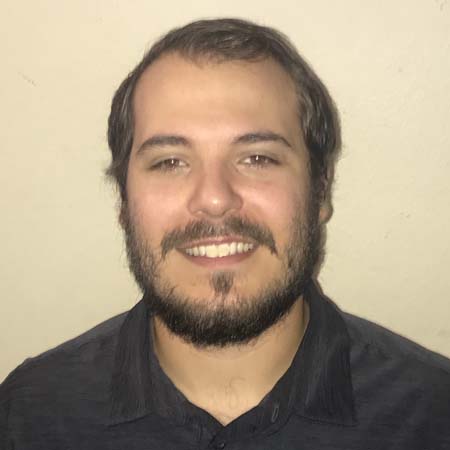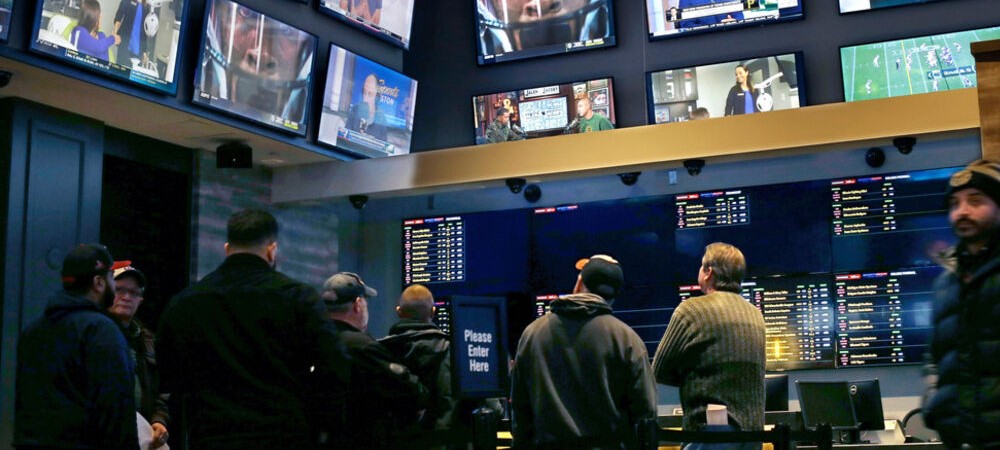- HB 3008 passed an important vote in the Oklahoma House Appropriations and Budget Committee Wednesday by a vote of 28 yay – 3 nay.
- The bill would alter Oklahoma’s tribal gaming compacts to allow Oklahoma’s tribes to offer in-person sports betting at their tribal facilities at a 10% tax rate.
OKLAHOMA CITY – HB 3008, a bill that would legalize retail sports betting in Oklahoma at tribal venues, passed a vital vote in the House Appropriations and Budget Committee Wednesday.
Oklahoma Sports Betting Bill Passes Committee Vote
The bill was originally filed by Rep. Ken Luttrell in January. While the near-unanimous (28 yay – 3 nay) passage through the Appropriations and Budget Committee is certainly a positive sign, the bill is working against a March 24 deadline to pass a House vote and move on to the Senate.
This puts the status of the legal sports betting bill in jeopardy.
What Would HB 3008 Do?
Under HB 3008, Oklahoma’s tribal gaming compacts would be amended to include in-person sports betting as a permitted activity at tribal gaming facilities.
A 10% tax on monthly net sports betting revenue would be levied on the operating tribal entities, and the bill would be effective as of November 1, 2022.
Any gaming compact amendment also requires approval from the U.S. Department of the Interior before enactment.
An Opportune Moment To Regulate Sports Betting In Oklahoma
According to Rep. Luttrell, a wide range of factors played into his filing of the bill in January, including bordering states launching their own regulated sports betting markets.
“I have had conversations with our gaming tribes during the interim to gauge their interest on this topic… I feel the time is right for Oklahoma to partner with the tribes and ensure a level, competitive gaming playing field with the surrounding states,” said Luttrell.
Luttrell’s statement reflects Oklahoma’s situation in the broader sports betting industry of the United States. Currently, several states bordering Oklahoma offer some sort of regulated sports betting.
Arkansas and Colorado both offer online and in-person sports betting, while New Mexico offers in-person sports betting only.
Texas and Kansas do not yet offer any state-regulated sports betting; however, Kansas may soon regulate the industry as sports betting legislation is currently being considered.
This situation leaves Oklahoma in a position to lose out on revenue to these bordering states.
That is not the only reason Luttrell cites for his filing of HB 3008, however; there are also some strong financial incentives involved in regulating sports betting.
“Illegal sports betting occurs throughout Oklahoma, and figures I obtained from the Oklahoma State Bureau of Investigation (OSBI) show 11 offenses recently with tens of thousands of dollars seized… This reflects only a fraction of what actually occurs in our state,” said Luttrell. “The Oxford Economics Group estimates that legal sports betting would generate $240 million in revenue for Oklahoma and create over 3000 direct and indirect jobs. This legislation just makes sense.”
While the $240 million estimate is likely on the high end when the state’s size is considered, any additional tax revenue generated by legal sports betting in Oklahoma would be a benefit for Oklahoma.
Advertising Disclosure
In order to provide you with the best independent sports betting news and content LegalSportsBetting.com may receive a commission from partners when you make a purchase through a link on our site.
News tags: Arkansas | Colorado | HB 3008 | Kansas | Ken Luttrell | New Mexico | Oklahoma | Oklahoma House Appropriations And Budget Committee | Oklahoma State Bureau Of Investigation | Oxford Economics Group | Texas | US Department Of The Interior

Jerad has been a welcomed addition to the LegalSportsBetting.com writing team. Covering topics regarding the expansion of sports betting in the US, Jerad focuses on legislative efforts, bill signings and other methods for sports betting legalization. Finishing his education as a college baseball player, Jerad has first-hand knowledge of competitive sports, paired with years of personal sports betting as well. As a political science major at the University of Central Florida, Jerad covers the political, legal, and legislative aspects of sports gambling without any issues.



 College Football Betting
College Football Betting Best Online Sports Betting
Best Online Sports Betting Best Legal NFL Betting
Best Legal NFL Betting States With Legal Sports Betting
States With Legal Sports Betting Sports Betting Events
Sports Betting Events




